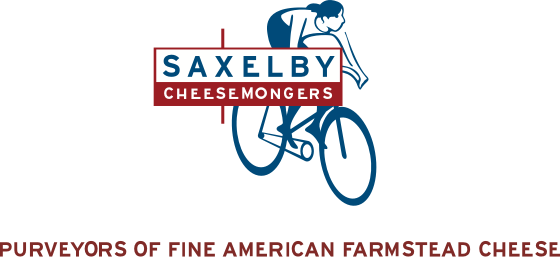
Longtime friends of Saxelby Cheesemongers may remember Veronica Pedraza as one of the company's very first employees back in 2008. We were operating out of a tiny market stall in those days, and Pedraza, who had just finished a year-long apprenticeship with a creamery, was looking for a different kind of hands-on cheese education.
Nearly 15 years later, she's now the head cheesemaker at Blakesville Creamery in Port Washington, Wisconsin, and is one of the newest champions of sustainable farmstead cheese in a state where such operations are few and far between. Pedraza just opened Blakesville's doors in the summer of 2020, but has already won awards for cheeses including St. Germain and Sunny Ridge—two of our best sellers! We couldn't be more excited to share her cheese with you.
The creamery works in tandem with Blakesville Dairy Farm, which is home to 1,500 goats "smack dab on Lake Michigan," as Pedraza puts it. Lynde Uihlein, the owner of Blakesville's farm and creamery, bought the property in 2012 from a farmer who didn't want to see the land get developed into condos. For ecological reasons, Uihlein began the long process of converting the farm from cow milk production to goat milk.

So are goats more environmentally friendly than cows? Goats eat less than cows and produce less methane, but for the Blakesville team, the real problem was poop. Liquidy cow pies are prone to runoff when it rains, and given the farm's proximity to the lake, that runoff can contribute to algae blooms and organic waste buildup that damage freshwater ecosystems. Goat poop comes out in small, dry pellets that stay put when it rains rather than spreading towards the nearest source of water. Now you know!
With so many goats on the farm, Pedraza is able to overcome the usual seasonal rhythms of cheesemaking through a stable, year-round supply of milk for her cheeses. Goats aren't bred to produce milk in the absence of babies the way cows are, but "we have a large enough herd to split it off into groups and breed at different times of year to provide a continuous supply of milk," Pedraza says. That was important to her when she was in talks with Uihlein to open the creamery. "Consumers generally don't understand why a seasonal product isn't available year-round. And that steady supply affords me stability and some work-life balance."
Blakesville specializes in washed rind and bloomy rind cheeses that make the most of goat milk's barnyardy bravado and lactic twang. Pedraza's also a beer expert—"I've always thought beer pairs better with cheese than wine"—so she brings that love to her cheese, washing wheels of Afterglow and Sunny Ridge with Belgian and sour beers for added layers of fruity funk. Yeast is attracted to the carbohydrates in the beer, she explains, which helps the cheese ripen over time while enhancing its aroma.

Not everyone gets it. Cheese is big business in Wisconsin, and Pedraza explains most producers operate on larger scales than she's used to on the East Coast. "When we were building the creamery," Pedraza says, "we got a bunch of equipment from France like draining plates and block molds. Our general contractor looked at all the parts and asked me, 'why are you gonna make all these little cheeses when you could make one big cheese?"
Pedraza is eager to make waves. Describing the scene at a recent World Championship Cheese Contest award ceremony, "the guys in the old boy network were like, 'oh, you're that goat dairy down the road.'"
"We're coming for you guys," she thought to herself in response.
Try Blakesville Creamery's goat cheese today!
Photos courtesy of Blakesville Creamery, shot by Jack Li

